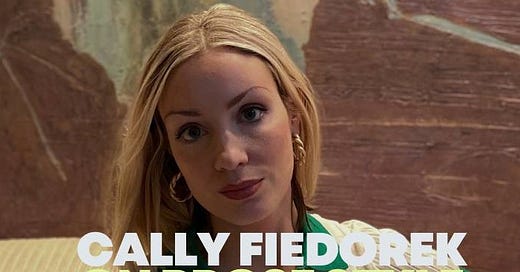'Sometimes you want to let yourself vamp for the cheap seats': Cally Fiedorek on prose style
Plus our next pick from the recent releases in literary fiction
Keep reading with a 7-day free trial
Subscribe to Auraist: picking the best-written books to keep reading this post and get 7 days of free access to the full post archives.




